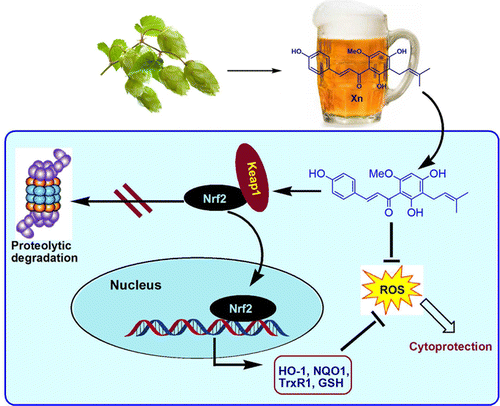Science. Gotta love it.
Listen up, y’all. A recent report by the Journal of Agricultural and Food Chemistry proves that drinking beer may actually be good for the brain. A damn good reason (as if we needed one) to head on over to happy hour.

Photo courtesy of pubs.acs.org
Ok, we know that this (^) is kind of impossible to understand, unless you’re ridiculously scientifically-inclined. If you are, mazel tov; if you aren’t, read on.
After breaking down all of that scientific lingo, ACS found that Xn, a compound found in hops and in beer, can slow down Alzheimer’s and Parkinson’s diseases. If you’re reading this and thinking, Wow, I can stop diseases by drinking beer? Well… maybe.
What the study says is that beer can prevent brain disorders. Drink up, and read on.
The reason behind it
So Dr. Jianguo Fang (possibly every frat boy’s new idol) did a study at Lanzhou University in China on rats to find out what exactly Xn’s chemical effect was on the brain.
The study basically has shown that Xn diminishes a type of chemical on cells that causes certain brain diseases.
Even though the research was done on rats, these kind of results clearly mean something for the human brain. And beer.
How does this affect you?
This is only the beginning of the research. There will need to be more studies finding out how exactly to put this Xn compound to use in terms of preventing brain disorders.
But for now?
Have a drink while doing your homework.

Gif courtesy of giphy.com
Use your better (drunk) brain to practice your public speaking skills.

Gif courtesy of giphy.com
Make a killer (drunk) first impression to the bf/gf’s parents.

Gif courtesy of giphy.com
Put your superior brain to use by kicking butt in school.

Gif courtesy of giphy.com
And most of all, make good life decisions.

Gif courtesy of giphy.com
This doesn’t mean go ham on the keg next time you’re at a party. But when you’re thinking of what to fill your solo cup with, you might want to consider some beer. Drink up, kids.
Get yo drank on with these articles:




